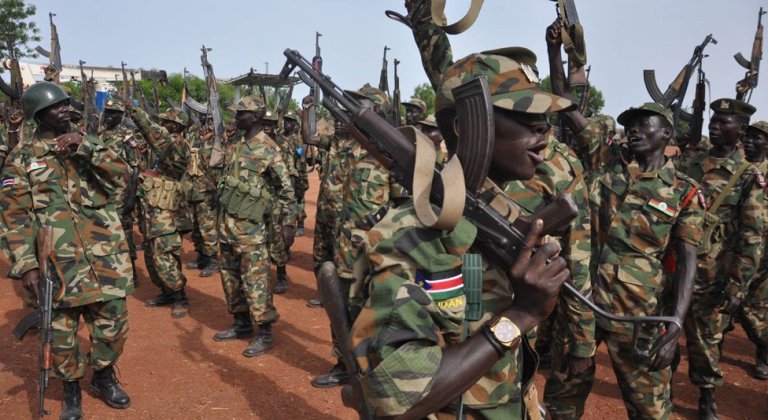South Sudan army, SPLA-IO agree to allow humanitarian access

November 6, 2108 (JUBA) – Officials from the South Sudanese government army, SSPDF, and the main opposition army, SPLA-IO, agreed to allow humanitarian access and free movement of people around Juba.
Upon the instruction of their two chiefs of staff, the SPLA-IO forces based around Juba, and their peace partners from the South Sudan People’s Defence Forces (SSPDF) held a meeting on Sunday 4 November to discuss security measures to ensure humanitarian access to civilians and enable free movement of persons and goods.
In a statement released on Tuesday, SPLA IO Deputy Military Spokesperson Lam Paul Gabriel said the meeting was fruitful. He further said the SSPDF delegation was led by Brig Gen Chol Deng Chol was known as Chol Gutkom and the SPLA delegation was headed by Brig. Gen Warnyang Laku Buyu.
The meeting agreed to “give humanitarian organizations unhindered access to the most vulnerable population so that basic services can be provided to them,” he said.
He further said that the two delegations agreed to allow “free movement of soldiers or security personnel with departure orders,” he said before to add that “The soldier must be unarmed and in none uniform”.
The two peace partners who will form the new national army agreed also to permit free movement of civilians, non-military logistics and goods through or to the SPLA-Io controlled areas.
This measure means that all the roads from North of Juba to Terekeka, Mundri and to Lainya should be open to everyone. There will be no detention or checking “unless a person is carrying a gun and wearing uniform”.
President Salva Kiir and SPLM-IO leader Riek Machar repeated that ending the suffering of civilians was their principal motivation to strike the revitalized peace agreement in order to end the five-year war.
The signed deal is in line with the security arrangement of the signed revitalized peace agreement which provides that the signatories allow and facilitate unfettered access for people in need of humanitarian assistance and to guarantee free movement of citizens, commodities and services.
The peace agreement provides that 15 days after the signing of the deal the parties have to implement all the ceasefire arrangements including, disengagement and separation of forces in close proximity; withdrawal of allied troops; and the opening of humanitarian corridors.
IGAD military assessment mission headed by a Sudanese general arrived Monday to Juba to study the status of the Regional Protection Force as the regional body will deploy its troops within it.
In a meeting held in Khartoum on 22 October, the IGAD chiefs of staff decided the formation of the mission and agreed that t should submit its report on 19 November 2018 to the next meeting of the chiefs of staff In Ethiopia.
(ST)
